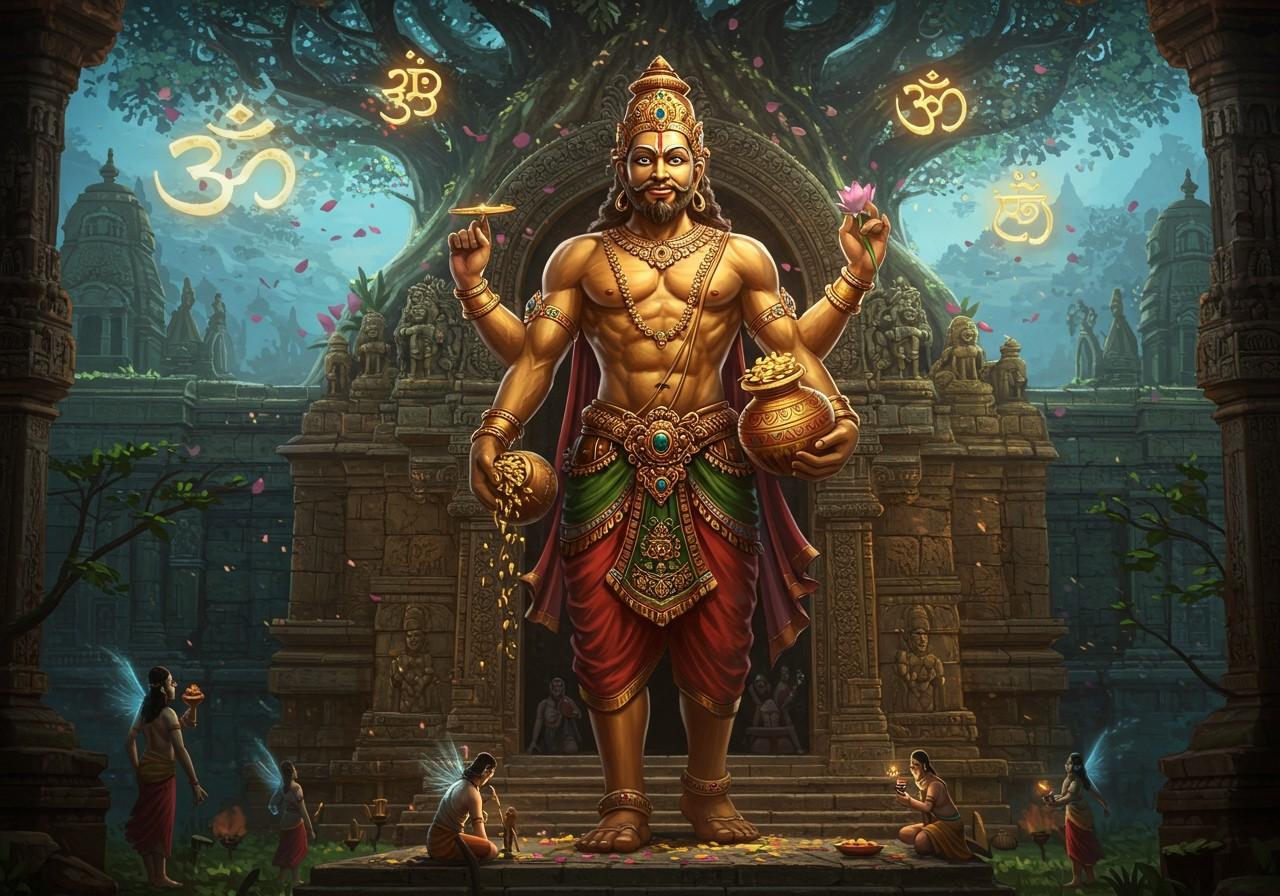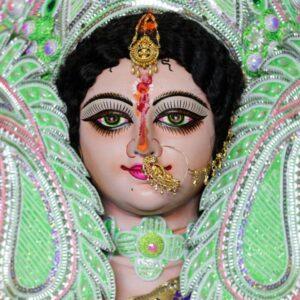
Yakshas, enigmatic nature spirits, hold a significant place in Hindu, Buddhist, and Jain mythologies. Often benevolent, yet sometimes mischievous, these beings are associated with various elements of nature, including water, fertility, forests, and hidden treasures. Delve into the rich history and cultural importance of Yakshas across these diverse spiritual traditions.
Yakshas in Hinduism: Guardians of Wealth and Nature
In Hindu mythology, Yakshas are deeply rooted in ancient scriptures like the Vedas and Puranas. They possess a dual nature, acting as benevolent guardians of treasures and occasionally as mischievous spirits. Kubera, the god of wealth, is a prominent Yaksha. These beings are frequently associated with natural elements such as trees, mountains, and water bodies, symbolizing the delicate balance between material wealth and spiritual abundance in Hindu rituals and festivals. Yakshinis, the female counterparts of Yakshas, are particularly linked with water bodies.
Explore more about Hindu deities and rituals on Hinduism’s Global Reach and Hinduism: A Complete History and Origin (published January 23, 2025).
Yakshas in Buddhism: Protectors of the Dharma
Within Buddhism, Yakshas transition from mischievous spirits to protectors of the Dharma, often serving as attendants to the Buddha. Their role is to safeguard the sanctity of Buddhist teachings. Vajrapani, renowned for his strength and power, is a prime example of a protective Yaksha in Buddhism. His image frequently adorns Buddhist art, such as stupas and monastic complexes, where he acts as a guardian against malevolent forces.
Buddhist texts featuring Yakshas impart valuable moral lessons emphasizing protection, generosity, and humility, mirroring the core values of Buddhist teachings. These narratives often depict their journey from chaos to enlightenment, reflecting the human quest for spiritual growth. Learn more about Buddhist figures and philosophy at Hinduism: A Concise History and Exploration of its Origins (published January 23, 2025).
Yakshas in Jainism: Custodians of Jain Values
In Jainism, Yakshas and Yakshinis appear as pairs, accompanying the Tirthankaras. They serve as protectors, embodying and safeguarding the values and teachings of Jainism. Their presence in Jain cosmology underscores their vital role in maintaining spiritual integrity. Artistic depictions of Yakshas in Jain temples vary regionally, showcasing diverse styles and elements, often incorporating intricate carvings that narrate stories of virtue and truthfulness.
Yakshas play a profound role in Jain rituals, symbolizing virtues such as non-violence and detachment. Their stories serve as reminders of the importance of ethical living, guiding devotees on the path to liberation. Explore the world of Jainism and its profound figures at Valmiki Ramayana: Author, Poet, Sage (published January 23, 2025).
Yaksha Mythology and Cultural Significance
Yaksha mythology is interwoven throughout Indian folklore, literature, and art. They feature prominently in local traditions and festivals, where they are celebrated for their mystique and protective qualities. Stories about Yakshas often revolve around themes of hidden treasures and environmental guardianship. Their influence extends to classical literature and performing arts, inspiring narratives that explore the complexities of human emotions and moral dilemmas. Even in contemporary culture, Yakshas continue to inspire modern art, literature, and popular media, reflecting their enduring appeal as symbols of mystery, wealth, and spiritual guidance.
Poojn.in: Supporting Your Spiritual Journey with Yaksha-Related Items
Poojn.in offers a comprehensive collection of authentic items for worshipping and honoring Yaksha deities across Hindu, Buddhist, and Jain traditions. Our offerings include:
- Pure copper and brass idols of various Yaksha forms: Crafted with meticulous detail by skilled artisans to honor these revered beings.
- Traditional incense sticks and dhoop: Specifically used in Yaksha worship to create a sacred atmosphere.
- Special puja thalis designed for Yaksha offerings: Enhance your rituals with these beautifully crafted thalis.
- Pure cotton wicks and brass diyas for ritual lighting: Illuminate your sacred space with traditional lighting.
- Natural flowers and garlands: Offerings of fresh flowers and garlands to express reverence and devotion.
- Pure ghee for ritual lamps: Use pure ghee to fuel the lamps during your Yaksha ceremonies.
- Copper and brass bells: Enhance the spiritual resonance of your Yaksha worship.
Poojn.in ensures that all items adhere to traditional specifications and are crafted by skilled artisans. Our products include detailed usage instructions and are carefully packaged to preserve their sanctity. We provide pan-India delivery with secure packaging to protect these sacred items. Visit www.poojn.in or contact our customer service for guidance on selecting the appropriate items for your Yaksha worship needs. Our team of experts can assist you in choosing products that align with your specific religious tradition and requirements. For up-to-date pricing and availability, please visit our website or contact our customer service team. Consider enhancing your worship with our selection of Lord Shiva murtis and camphor (added to the catalog on April 27, 2024 and May 3, 2024, respectively).
Conclusion: Embracing the Enduring Legacy of Yakshas
Yakshas serve as a bridge between mythology and spirituality across Hinduism, Buddhism, and Jainism. They represent powerful symbols of protection, moral values, and spiritual guidance. Whether guarding the Dharma in Buddhism or embodying the teachings of the Tirthankaras in Jainism, their presence enriches cultural heritage, reminding us of the timeless values they represent. As custodians of wisdom and virtue, Yakshas inspire us to embrace ethical living, generosity, and humility, guiding us toward a life of balance and spiritual fulfillment.
FAQs: Understanding Yakshas in Different Religious Beliefs (2025)
What are Yakshas in Hinduism? In Hinduism, Yakshas are nature spirits often associated with wealth and prosperity, serving as guardians of hidden treasures and worshipped in rituals for good fortune.
How are Yakshas viewed in Buddhism? In Buddhism, Yakshas are protectors of the Buddha and his teachings, acting as spiritual beings that can be both benevolent and malevolent.
What role do Yakshas play in Jainism? In Jainism, Yakshas are attendants of the Tirthankaras, revered as guardian deities protecting Jain temples and sacred spaces.
Are Yakshas considered gods? Yakshas are not gods in the traditional sense but rather demigods or spirits with supernatural powers associated with nature and wealth.
Why are Yakshas important in these religions? Yakshas symbolize the connection between the material and spiritual worlds, acting as guardians and protectors to ensure a balance of prosperity and spirituality.
Can Yakshas be worshipped in homes? Yes, particularly in Hinduism, Yakshas are worshipped at home for wealth and protection, often represented by idols or images.
What is the difference between Yaksha and Yakshini? Yakshas are male nature spirits, while Yakshinis are their female counterparts, both serving as guardians and often depicted together.
How are Yakshas depicted in art and sculpture? Yakshas are typically portrayed as robust and powerful figures adorned with rich attire and ornaments, symbolizing their connection to wealth and nature.

